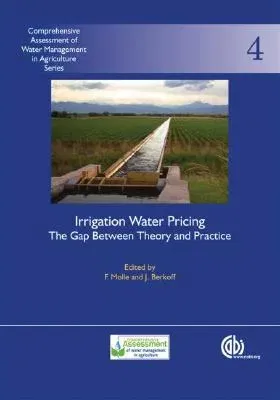François Molle
(Author)Irrigation Water Pricing: The Gap Between Theory and PracticeHardcover, 1 December 2007

Qty
1
Turbo
Ships in 2 - 3 days
Only 2 left
Free Delivery
Cash on Delivery
15 Days
Free Returns
Secure Checkout

Part of Series
Comprehensive Assessment of Water Management in Agriculture
Part of Series
Agriculture
Print Length
360 pages
Language
English
Publisher
Cabi
Date Published
1 Dec 2007
ISBN-10
1845932927
ISBN-13
9781845932923
Description
Product Details
Authors:
Book Format:
Hardcover
Country of Origin:
GB
Date Published:
1 December 2007
Dimensions:
24.64 x
17.27 x
2.29 cm
Genre:
Environmental Studies
ISBN-10:
1845932927
ISBN-13:
9781845932923
Language:
English
Pages:
360
Publisher:
Weight:
979.76 gm